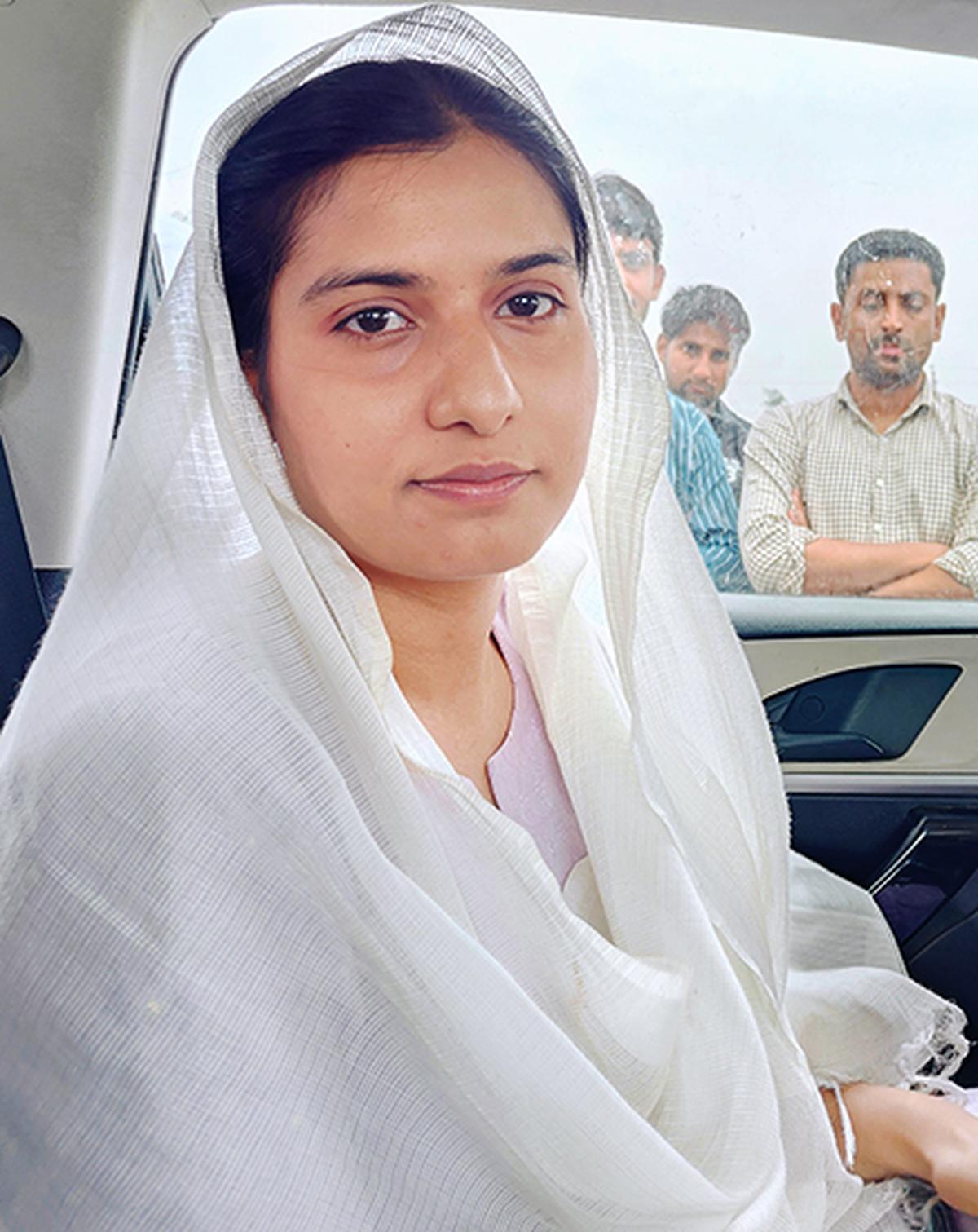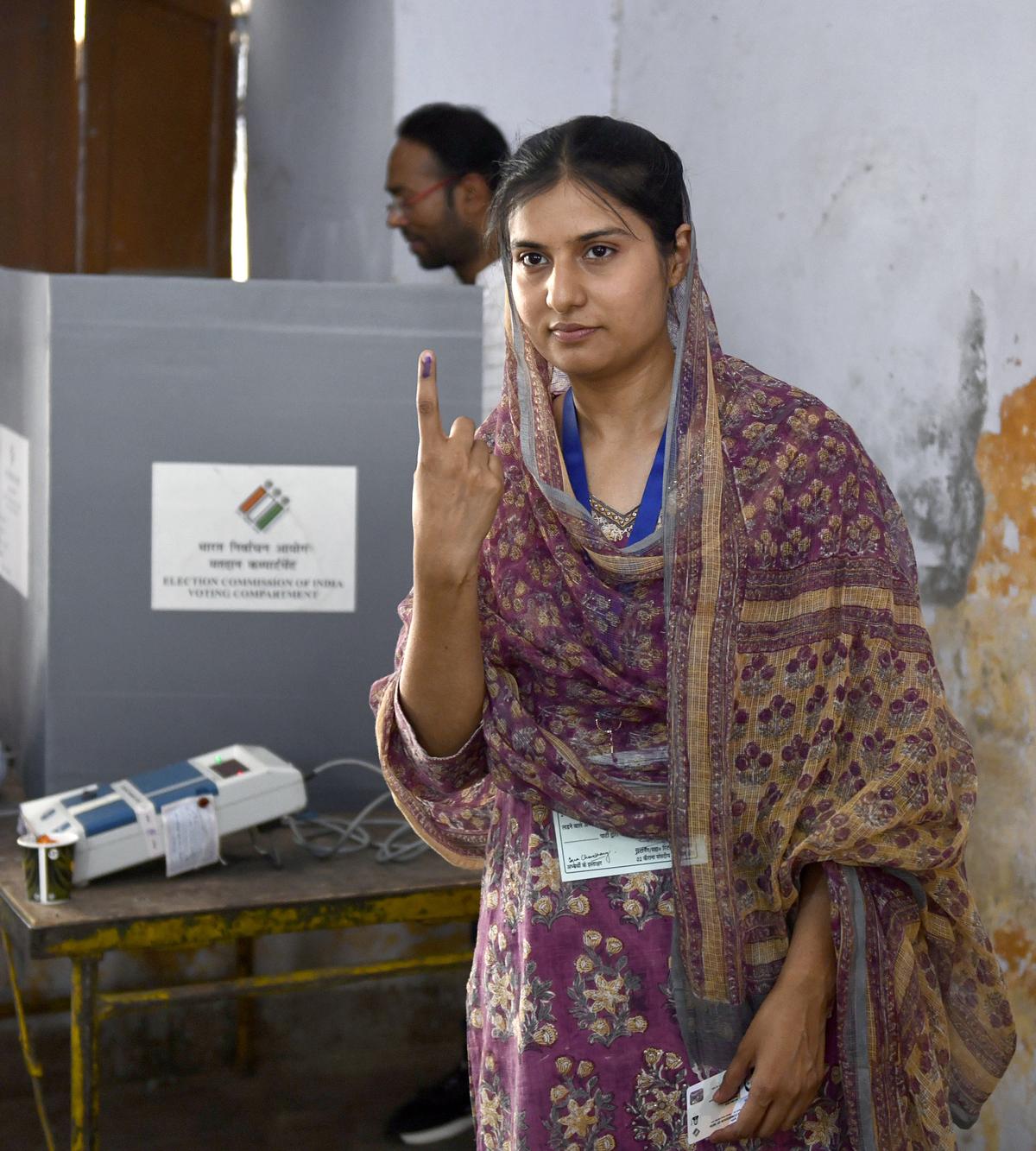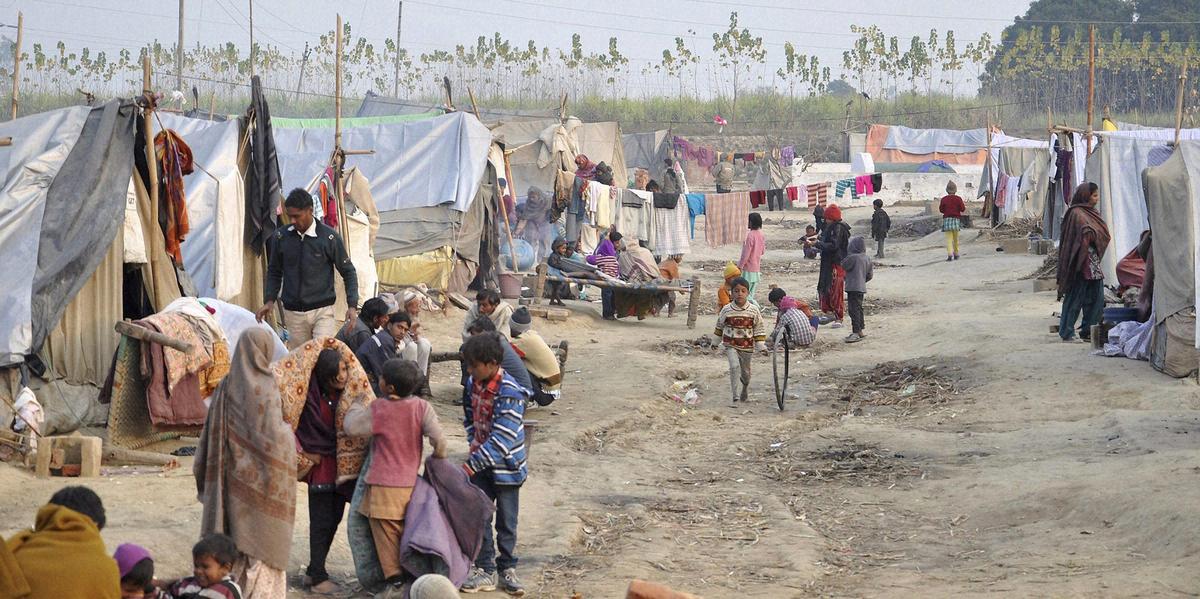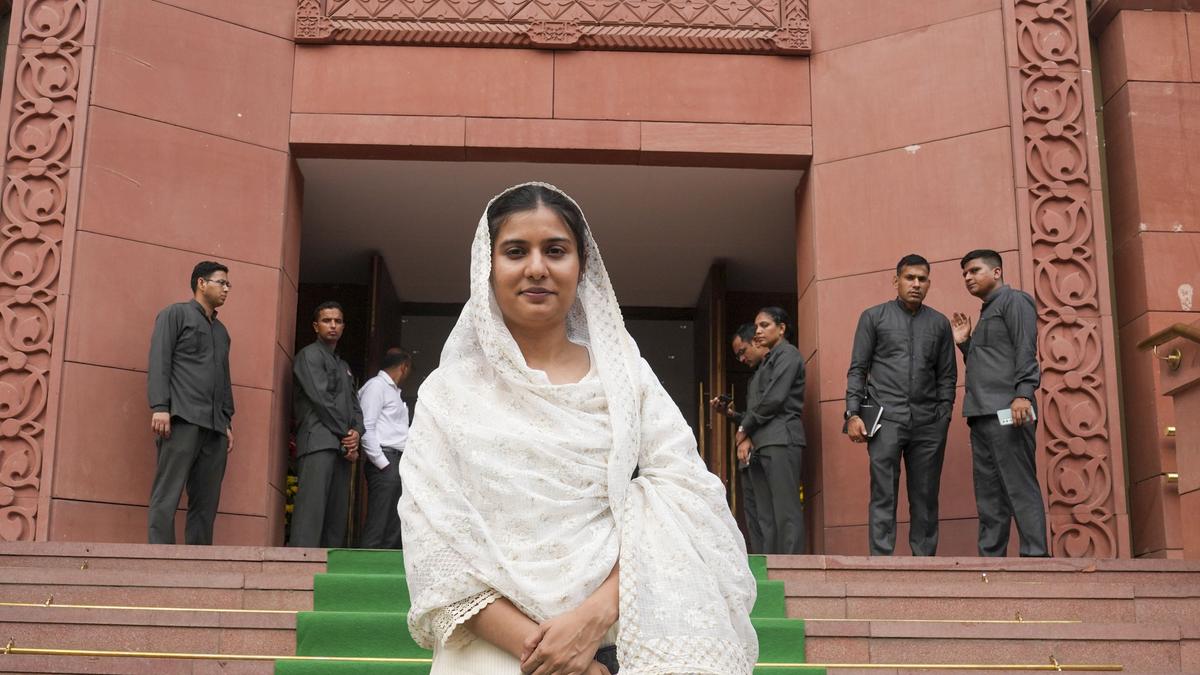Samajwadi Party MP Iqra Hasan at the Parliament House complex, in New Delhi.
| Photo Credit: PTI
In a political milieu where there was no level playing field, the 2024 general elections became a David versus Goliath fight between the janata (people) and the netas (leaders), and the Indian voter fought back to put the political class on notice, argues journalist writer Rajdeep Sardesai in his new book, 2024: The Election That Surprised India. An excerpt from the chapter, ‘Democracy Zinda Hai (democracy is alive) — Stories of Hope’:

A young woman in her mid-twenties in London dreams of doing a PhD in political science at the prestigious School of Oriental and African Studies (SOAS), only to find herself navigating the sprawling sugar cane fields of Kairana in western Uttar Pradesh and seeking election to the Lok Sabha a few years later. The story of 30-year-old Iqra Hasan is unusual: inspiring and disconcerting at the same time. Having completed her Master’s at SOAS, the academically inclined Hasan was planning on undertaking further studies, when the COVID-19 pandemic forced her to return home in the summer of 2021. Her concerns didn’t end there. Just a few months later, ahead of the 2022 Uttar Pradesh Assembly elections, her brother, Nahid Hasan, a three-time Samajwadi Party MLA from Kairana, was arrested under the Uttar Pradesh Gangsters and Anti-Social Activities (Prevention) Act, 1986. “It was like my whole world fell apart overnight. My father had passed away much earlier, my mother was unwell, my brother was in jail only because he had challenged the Yogi Adityanath government, our bank accounts were frozen, our properties placed under litigation. Forget about academics, I just had to stay focused to hold the family together,” said Hasan.

Samajwadi Party candidate Iqra Hasan in Kairana.
| Photo Credit:
Anuj Kumar
Several challenges
Her first challenge was to handle her brother’s 2022 campaign. While she comes from a well-known family of politicians — her grandfather, father and mother have all been MPs — organising an election campaign was an entirely different ballgame for this shy young woman who until then had been engrossed in her political science books. “I woke up to the world of difference that exists between theory and practice. Suddenly, I was dealing with caste and community politics in, dare I say, a very patriarchal set-up. I was a ‘bachhi’ (little girl) for many senior leaders,” she recalled. Still, her diligent efforts paid off: Nahid was elected to the State Assembly even while in jail. Soon after, when she was offered the chance to contest the Kairana Lok Sabha seat in 2024, she decided to take the plunge. “I guess there was no option. We were fighting the Yogi government day and night in Uttar Pradesh, so I felt that it made sense for me to take the fight to the voter,” she said.
Mapping the constituency
The Kairana Lok Sabha seat was a BJP bastion. In 2019, BJP MP Pradeep Choudhary had defeated Hasan’s mother, Begum Tabassum Hasan, by 92,000 votes. Choudhary was again contesting on a BJP ticket, so Hasan had the added incentive of avenging her mother’s loss. Kairana, a bustling agricultural town with a large Jat and Muslim population, had been at the epicentre of the 2013 Muzaffarnagar communal riots which had pitted the two communities, in direct conflict. Eleven years on, Hasan was faced with the seemingly insurmountable task of bridging the divide. She knew that to win the election she would need support from either side of the communal divide. Kairana has a roughly 40% Muslim population, while Jats, Gujjars, Sainis, Rajputs and Dalits are the other key voting groups. “From day one, I centred my campaign on issues cutting across ‘biradaris’ (fraternities) that had nothing to do with religion. One of the major problems we face in Kairana is ensuring a remunerative and timely price to farmers for the cane crop from the sugar mills. The Yogi government promised to double farmer incomes, but they only doubled unemployment,” she said.

Iqra Hasan at the polling booth, in Kairana, Uttar Pradesh.
| Photo Credit:
ANI
Dressed in a traditional salwar-kameez, she campaigned in the old-fashioned way. No big, splashy roadshows or noisy rallies but a sustained door-to-door campaign, where voters were instantly drawn to the quiet-voiced and sincere Iqra ‘behen’. “I don’t think there is a single house in the constituency at whose door I did not knock. I wanted the people to know that I was one of them, someone who would be accessible to them at all times,” she remarked. The contrast with her BJP opponent who was accused of spending barely any time with the voters could not have been more glaring. Hasan’s personal connection and hard work made an impact on the electorate. She won the Kairana seat by over 69,000 votes while polling more than 5.28 lakh votes. ‘Kairana ki behen’ was now an MP. Her base was not just a solid Muslim vote but also many Hindu caste groups, whose trust she had managed to gain. The fact that the BSP vote collapsed, as it did in most parts of Uttar Pradesh, was a bonus. But most importantly, her win was a sign that Kairana was finally exorcising the ghosts of the Muzaffarnagar riots.

Riot victims at a relief camp in Loi village of Muzaffarnagar, in 2013.
| Photo Credit:
PTI
Signs of healing
A young Muslim woman, albeit from a political family, had defeated a strong BJP candidate who represented the dominant Hindutva lobby, which had been benefitting from communal polarisation for years. Perhaps the sustained farm agitations of 2020–21 had finally convinced voters to look beyond religious identity and focus on livelihood issues. It was as if a divided society was slowly being healed by the victory of a fearless, tireless, educated woman.
The 18th Lok Sabha has just twenty-four Muslim MPs, the lowest share in Parliament ever, and Iqra Hasan is one of only three women Muslim MPs. ‘I would love to see many more young women, Hindus and Muslims, enter politics. At the moment, politics is still a bit of a boys’ club that needs a shake-up!’ said the MP who has broken many stereotypes, and possibly inspired other young women to follow in her footsteps.
2024: The Election That Surprised India; Rajdeep Sardesai, HarperCollins, ₹799.
Excerpted with permission from HarperCollins.
Published – November 13, 2024 03:37 pm IST
